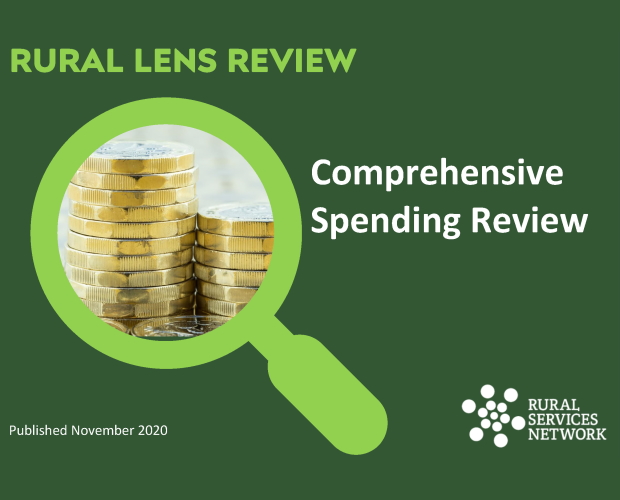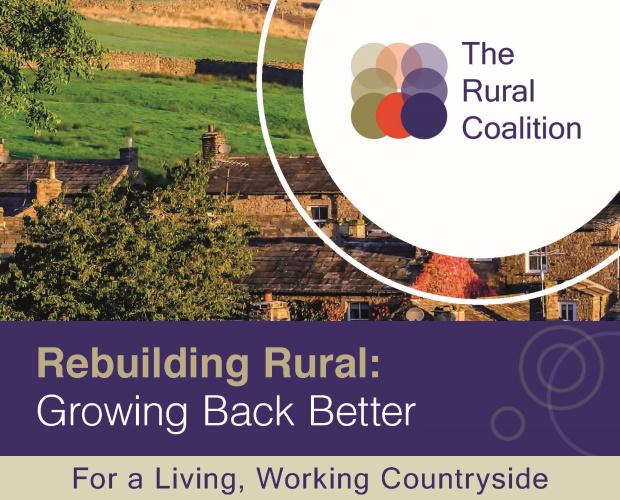T: 01822 851370 E: [email protected]
funding
The Government has announced a one-year Spending Review for 2020, the long- term spending review being abandoned in favour of a short term approach to prioritise the response to Covid-19 and a focus on supporting jobs. The Rural Services...
The hotly anticipated Comprehensive Spending Review was announced today, and given the unprecedented times in which we live, it was always going to be critical to see how the Government would support the shrinking economy and ensure the sustained delivery...
The Guardian has reported on warnings that cuts and a lack of support from central government have hampered local authority attempts to tackle climate change Three-quarters of local authorities across the UK have issued climate emergency declarations over the...
The Rural Services Network was concerned to read the article in Local Gov this week which highlighted research from Knight Frank indicating that ‘a disproportionate amount of Government funding for housing is being given to the UK’s most affluent areas’....
On 13th October the Rural Services All Party Parliamentary Group (APPG) met Steve Barclay MP The Chief Secretary to the Treasury to raise a number of rural issues ahead of the upcoming Spending Review. The RSN provides Secretarial Support to...
Sky News has reported that the number of bus journeys taken in England has fallen by 10 percent in the last decade, with funding for bus services down by nearly 40 percent, according to the National Audit Office Between...
Call for Government to level-up rural areas to support England’s economic recovery from COVID-19 Rural Coalition urges Government to unlock untapped potential of rural communities and economies and to address long-standing inequalities A coalition of thirteen...
The Guardian has reported on warnings from the Institute for Fiscal Studies that English councils could face a £2 billion ‘perfect storm’ over the next few months Without additional financial support from the Government, councils ‘face a difficult choice...
The Express and Star cover news that all state school pupils in England are to receive an increase in central government funding of at least two percent next year Under the settlement, secondary schools will attract a minimum of...
The Financial Times reports that the Government has authorised £48.5bn in additional spending on public services as a result of the COVID-19 crisis, including £15bn for personal protective equipment (PPE) for health workers Chancellor Rishi Sunak MP (Con) revealed...
NEWSLETTER
Sign up to receive all our latest news and updates.
HOT TOPICS
Amid reduced public spending, fair resource allocation across regions is crucial. Despite a population larger than Greater London, rural areas receive significantly less funding for essential services, even though delivering these services in rural areas is more expensive.
Economic growth is widely acknowledged as essential for national wealth and prosperity and is a priority for political parties. Rural economies, employing millions and home to a higher proportion of small businesses, have potential for growth if barriers are removed.
Rural residents face distinct healthcare challenges, including limited access to transport, longer distances to medical facilities, an aging demographic, housing inadequacies, digital connectivity gaps, and difficulties recruiting health and care workers.
Rural communities are grappling with a severe affordable housing crisis, marked by high house prices, a lack of affordable housing, elevated living costs, and lower incomes, threatening their sustainability and vitality.
Transport is vital for the quality of life and economic health of rural areas, yet it faces challenges such as infrequent public bus services and less Government funding compared to urban regions.
Rural areas, encompassing a substantial portion of England's population and land, play a pivotal role in combating climate change and achieving the net zero target.
In an increasingly digital world, the lack of robust digital infrastructure in rural areas severely limits access to crucial services and stifles economic growth.
A future-focused vision for rural communities involves not just building the right homes in the right places but also ensuring thriving, sustainable communities.
SIGN UP TO OUR NEWSLETTER
Sign up to our newsletter to receive all the latest news and updates.












